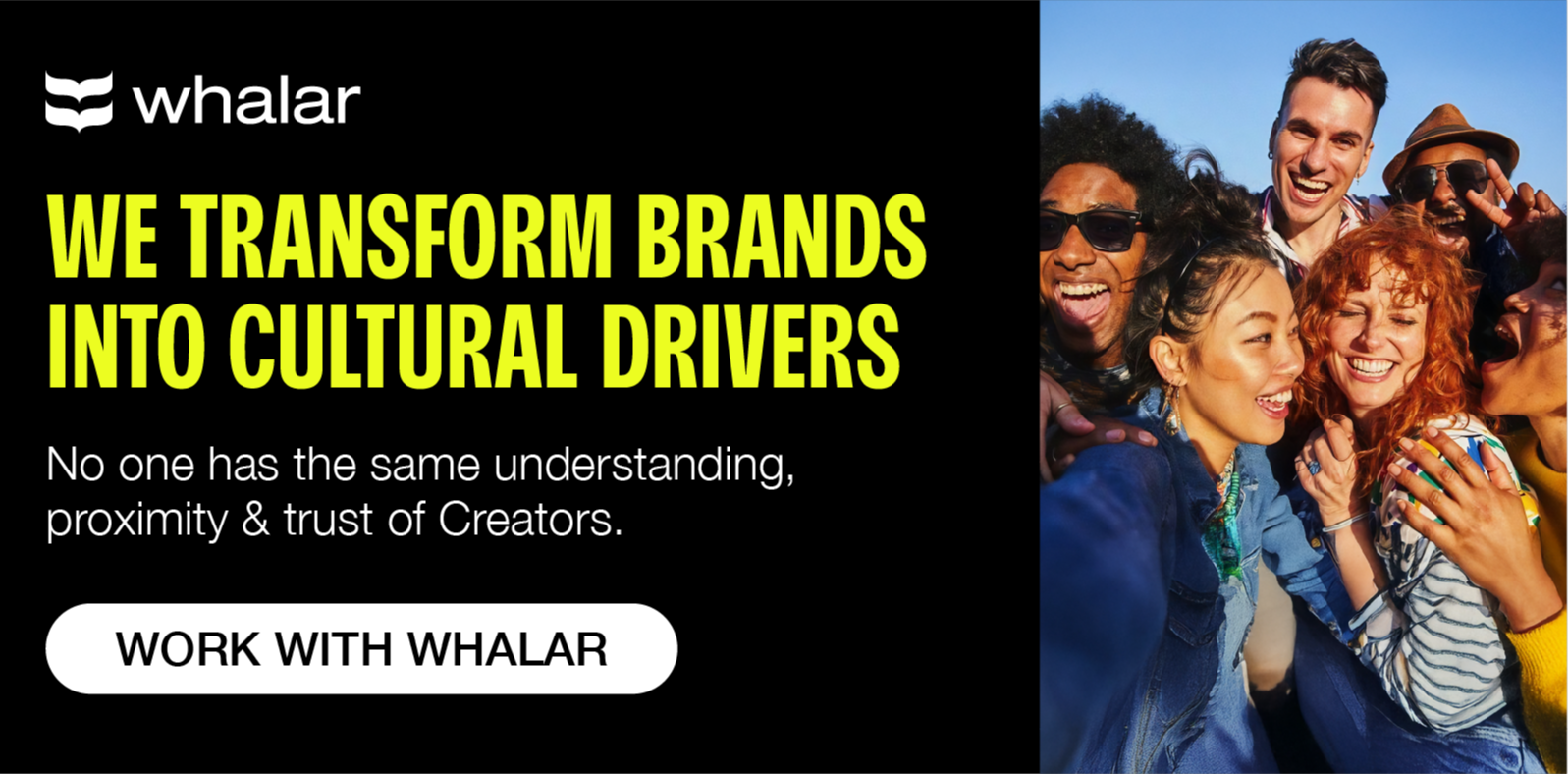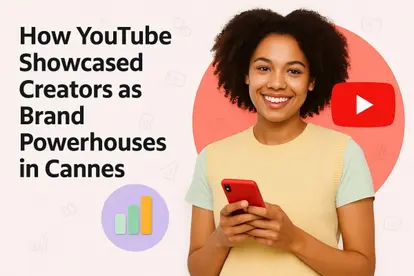- Creators as Strategic Partners: Cannes 2025 cemented the view that creators drive both culture and commerce, earning seats at brand-strategy tables rather than one-off influencer roles.
- AI Amplifies, Doesn’t Replace: YouTube’s Veo 3 demo highlighted how AI tools can scale production while retaining the unique voices and narratives that make creator-driven branded content resonate.
- Business Leadership Mindset: Advertisers now expect creators to present clear ROI—leveraging analytics, audience insights, and performance metrics to prove commercial value.
- Global Talent Spotlight: By elevating dozens of international creators in panels and activations, YouTube demonstrated the universal influence of creator storytelling across markets.
- Integrated Brand Ecosystem: From experiential Google Beach installations to high-visibility OOH placements, YouTube used Cannes as a launchpad to showcase its end-to-end support for creator and brand success.
From Neal Mohan’s keynote to global Creator Collectives, YouTube framed creators as indispensable allies for advertisers.
When the world’s top advertisers, agencies, and creative minds gathered on the French Riviera for Cannes Lions 2025, one message rang out clearly from YouTube’s bold—and omnipresent—programming: creators are not mere amplifiers of branded content, they are co-architects of culture and commerce.
Over the course of five sun-soaked days, YouTube leveraged keynote moments, immersive activations, and global “Creator Collective” showcases to recast the conventional influencer narrative and to underline how brand-creator partnerships can fuel both engagement and tangible business results.
Neal Mohan’s Innovation Keynote: Setting the Stage
On the main festival stage, YouTube CEO Neal Mohan delivered what many attendees called the “opening flourish” of Cannes. Joined by creators like Amelia Dimoldenberg and Brandon B, Mohan traced the arc from early algorithm-driven growth to today’s era of bespoke creator tools.
The message was unmistakable: “Creators don’t just distribute content; they originate cultural moments,” he declared, unveiling new AI-powered features such as Veo 3 and Dream Screen that promise to streamline production without diluting authenticity.
Creator Collectives: A Worldwide Tasting Menu
Beyond the keynote, YouTube’s “Creator Collectives” delivered on-the-ground proof of the platform’s global creator mosaic. In stylish beachfront cabanas at Google Beach, attendees encountered rotating showcases led by diverse talent:
- Dani Verdari (Germany): A CGI virtuoso, Verdari walked festival-goers through the making of a 3D mini-film commissioned by an automotive brand, complete with behind-the-scenes interview clips and real-time rendering demos.
- Ranveer Brar (India): The celebrated chef demonstrated a sponsored cooking segment filmed on YouTube Shorts, showing how recipe-driven content can marry seamless product integration with genuine storytelling.
- Yes Theory (Canada): Known for “seek discomfort” adventures, the trio hosted an interactive panel on co-creating experiential campaigns that drive both social shares and offline activations.
Each Collective felt less like a sales pitch and more like a cultural salon, where creators, brand execs, and media buyers mingled over espressos and swapped notes on metrics like audience retention and incremental lift.
From Storytellers to Business Leaders
One of the clearest shifts at Cannes was the pivot from viewing creators as “paid mouthpieces” to recognizing them as full-fledged business partners. In a late-afternoon workshop, Elizabeth Hartnett, YouTube’s Head of Creator Marketing for EMEA, outlined the new playbook.
Rather than chasing one-off virality, she urged attendees to treat creator relationships as long-term investments:
“Creators are CEOs of their own channels. They own deep audience insights. When brands tap into that expertise—by co-developing product concepts, narrative arcs, even distribution strategies—they unlock genuine trust and sustained ROI.”
Hartnett shared case studies where global CPG brands collaborated with micro-creators on product testing rounds, yielding six-figure pre-order sales long before national ad spends kicked in.
AI as Enabler, Not Replacement
Throughout YouTube’s Cannes programming, AI remained a recurrent theme, but always subordinated to creator craft. Julia Liebergall, Product Marketing Manager on the YouTube Ads team, emphasized that tools like Dream Screen (for dynamic backgrounds) and Veo Effects (for instant visual overlays) were designed not to supplant the creator’s voice, but to amplify it.
During a live product demo, Brandon B quipped:
“I can spend a weekend animating in my editor—or I can let Veo 3 scaffold me a base layer and spend that time writing a killer script instead.”
For brands, the appeal is clear: faster turnaround, lower production costs, and the ability to pilot multiple formats—think vertical-native ads, interactive Shorts, and episodic series—without ballooning budgets.
What Cannes Teaches Us About the Future of Marketing
Cannes Lions 2025 will be remembered not for glitzy after-parties alone, but for the definitive shift in how the advertising world values creative talent. By placing creators center stage—from Neal Mohan’s opening keynote through hands-on AI demos and the global Creator Collectives—YouTube illustrated a powerful truth: in today’s fragmented media landscape, creators are not just voice-overs or placements; they are the cultural architects who can spark authentic engagement, drive conversion, and anchor brands in the conversations that matter most.
For marketers plotting their next campaign, the takeaway is clear: move beyond transactional influencer fees and embrace creator partnerships as strategic alliances. Invest in long-term co-creation, leverage AI as a force multiplier, and most importantly, give creators the autonomy and respect they need to turn branded ideas into cultural phenomena.
In the words of YouTube’s leadership at Cannes, this is “the age of the creator, not the age of the ad.”



